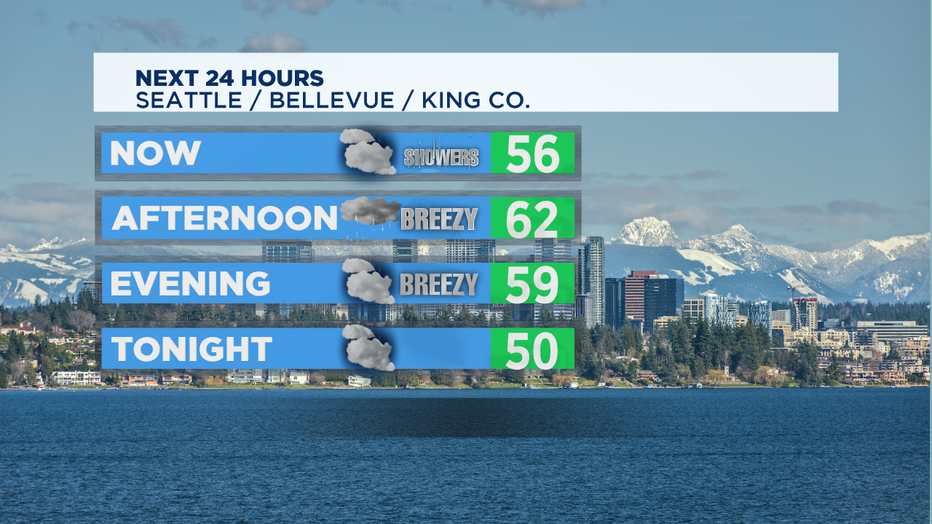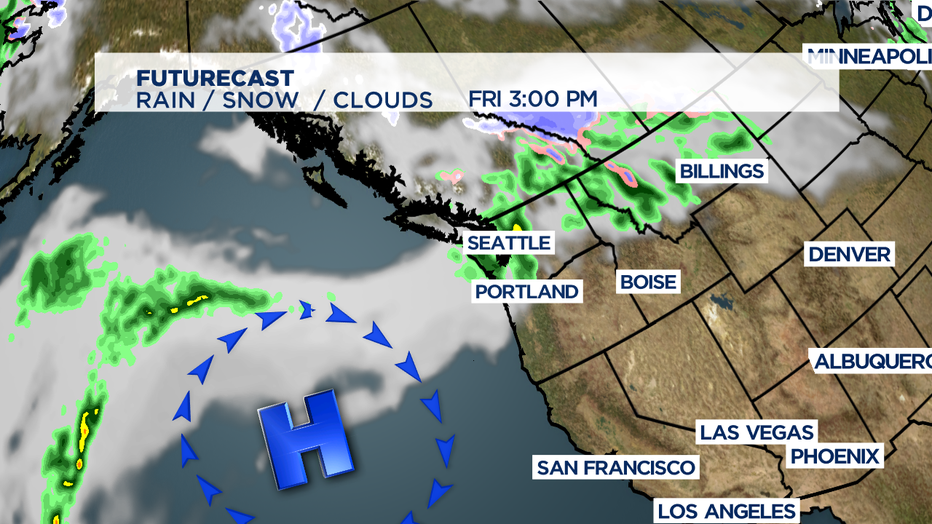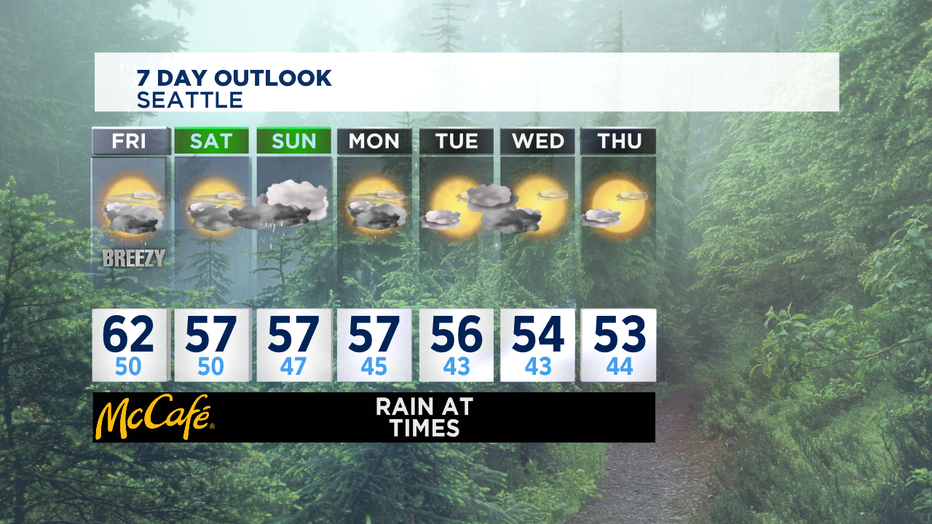Split weekend ahead: Mostly dry Saturday, soggier Sunday
SEATTLE - Tracking some light passing pre-frontal showers around Western Washington, but you'll want that hooded jacket for the band of steady light rain that will last for about 1-3 hours around Western Washington as a front drops from north to south today.
Winds will pick up this afternoon as well, but not to Wind Advisory criteria. While the winds won't be as strong as Tuesday's blustery day that left 180k without power-- we could still see some isolated outages with so many trees full of leaves. Each leaf can act as a tiny sail with gusts between 20-30 mph and can cause tree limbs to snap or bend into power lines.

For the Central Puget Sound, the steady light rain looks to move through during the afternoon. That will mean up north we'll se soggier earlier-- through the morning. The south end will see that rain hold off until later-- but will last into dinnertime. Temperatures today will get into the low 60s -- and today will be the most mild day of the coming week. Next week significantly cooler with highs mid-week only getting into the low 50s.

With a high-pressure ridge anchored offshore, the next few weather systems will go up and over the ridge to take a swipe at Western Washington. A nice pleasant break for most of Saturday to do some fall yard work and maybe get a last lawn mow in. Saturday night the sogginess returns and will stick with us through much of Sunday.

Next week some more rain at times. We'll see weather systems roll through with decent 24-36 hour breaks in between. It will keep pumpkin patches and trails pretty muddy-- but what you'll really notice is the much cooler weather next week. High temperatures all of next week will be in the 50s and a few days mid-week look like only low 50s are likely. That's the coldest we've been around here since early April. Hikers beware, cooler weather means much lower snow levels. While it is still aways out and much can change-- a weather system late Thursday could bring the first snowflakes to Snoqualmie Pass. While not much would stick at 3,000 feet in elevation-- it's a sure sign of the changing season. -Tim Joyce

